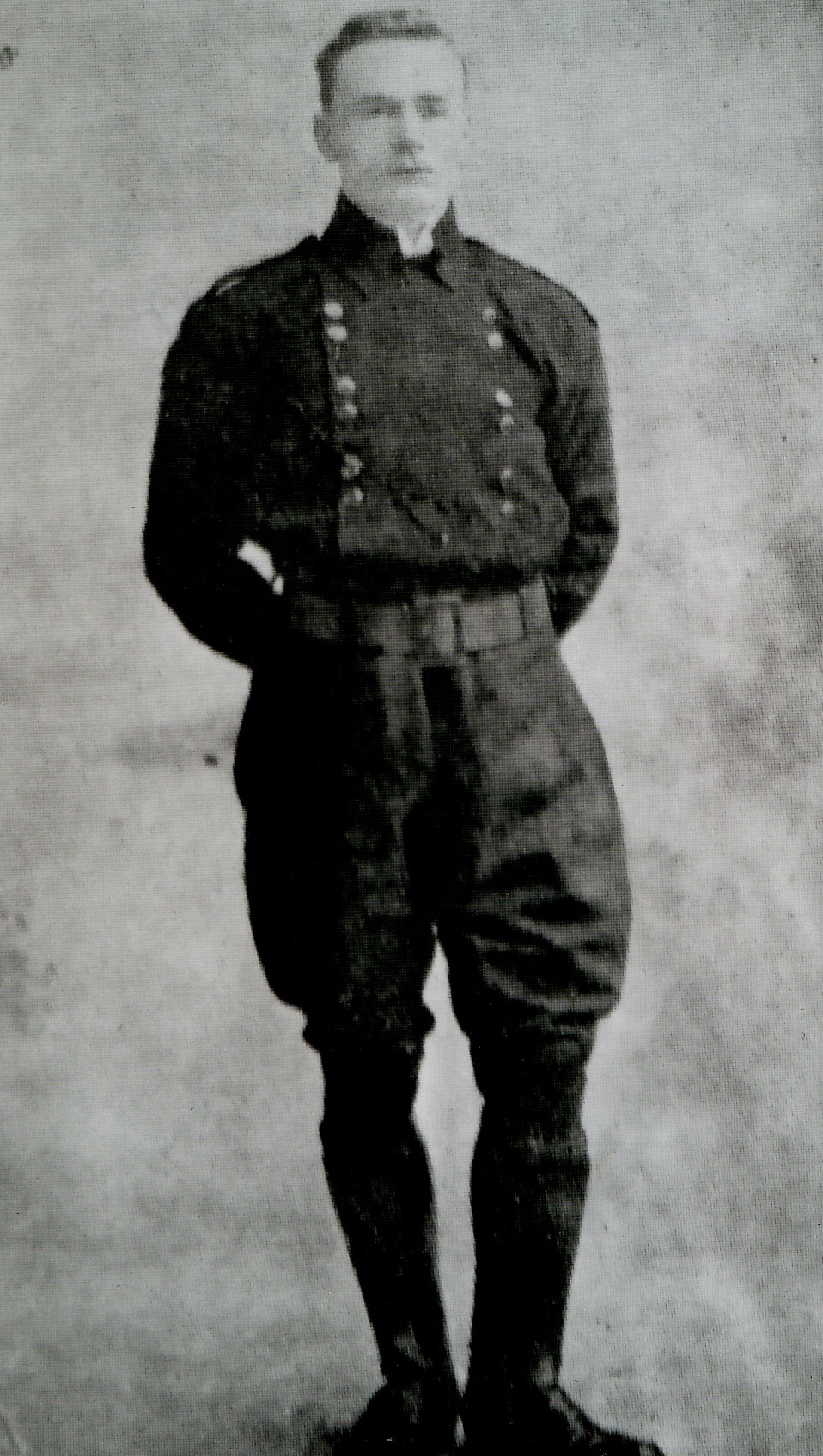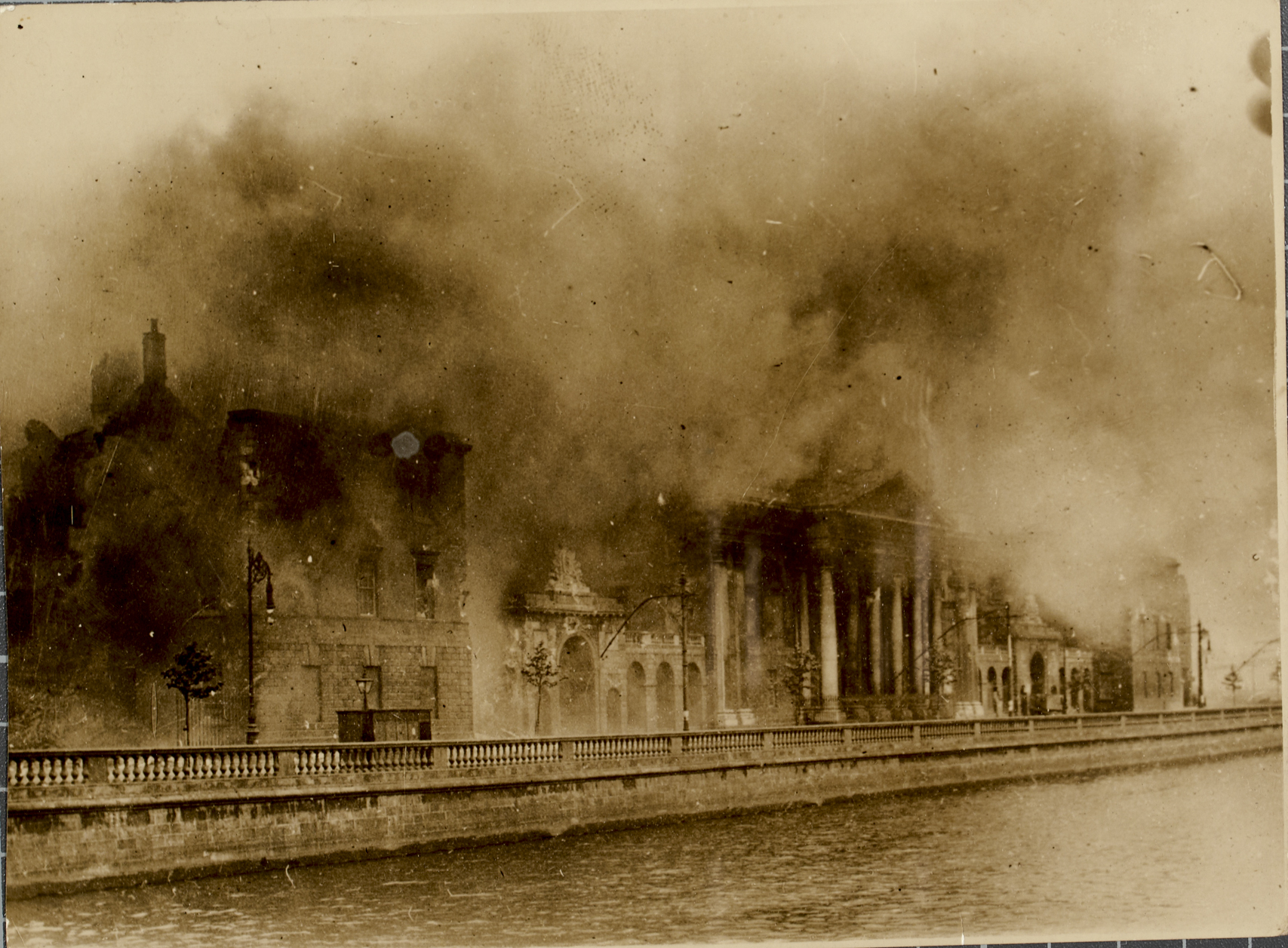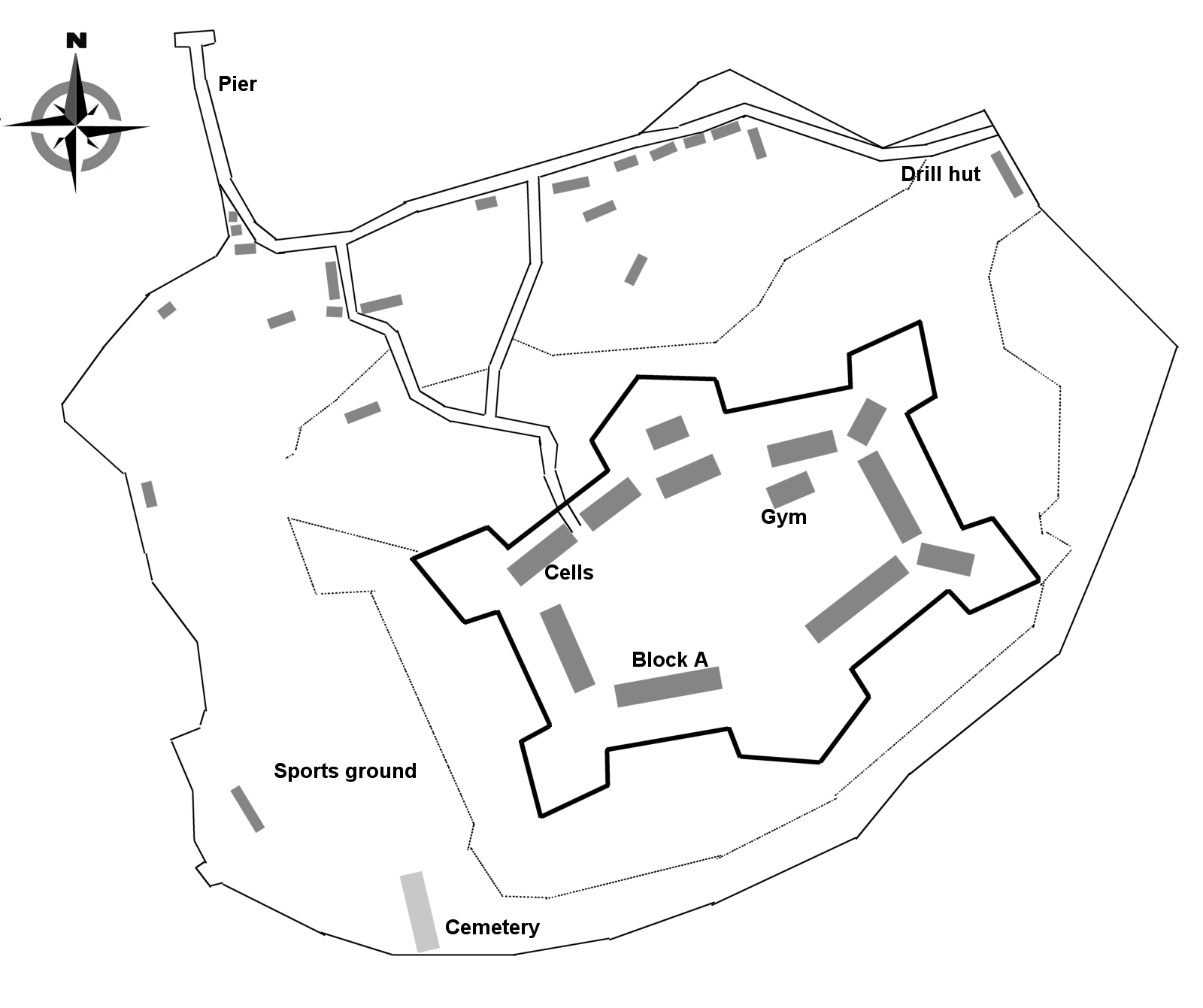|
Moss (Maurice) Twomey
Maurice Twomey (; 10 June 1897 – October 1978) was an Irish Republicanism, Irish republican and the longest serving List of IRA Chiefs of Staff, chief of staff of the Irish Republican Army (IRA). Early life Twomey was born in 1897 in Clondulane, near Fermoy, County Cork, Ireland and was educated by the Congregation of Christian Brothers. The son of a labourer at Hallinan's flour mill in the town, Twomey went to work there at the age of 14 where he rose to the position of works manager. In 1914 he became active in the Irish Volunteers. Character Twomey was a dedicated and well respected Irish Republican who successfully dealt with factions within the Irish Republican movement. "He was dedicated to Irish freedom and nothing else mattered to him. Compromise was not in his vocabulary." Twomey maintained a strong faith in Roman Catholicism. War of Independence By 1918 he was adjutant of the Fermoy Battalion and a year later became an adjutant of the Cork No. 2 Brigade. He ... [...More Info...] [...Related Items...] OR: [Wikipedia] [Google] [Baidu] |
Clondulane
Clondulane () is a village and civil parish in north County Cork, Ireland. The village is about east of Fermoy, just off the main Fermoy- Dungarvan road. Originally built as a camp for the workers of a Cork Milling Company grain mill, it now has a population of over 400. Clondulane is part of the Cork East Dáil constituency. There are three large houses of note in the village: Clondulane, Glandulane, and Careysville Houses, the latter being owned by the Duke of Devonshire (England) and used as a lodging house during the salmon season. Along with several housing estates and many stand alone dwellings, there is a school, community centre, public house, playing fields, park, disused railway station, factory, a Protestant school, Protestant church and graveyard. Transport Clondulane railway station opened on 27 September 1872, and closed on 27 March 1967. It was located on the now dismantled Waterford Waterford ( ) is a City status in Ireland, city in County Waterford i ... [...More Info...] [...Related Items...] OR: [Wikipedia] [Google] [Baidu] |
Adjutant
Adjutant is a military appointment given to an Officer (armed forces), officer who assists the commanding officer with unit administration, mostly the management of “human resources” in an army unit. The term is used in French-speaking armed forces as a non-commissioned officer rank similar to a master sergeant or warrant officer but is not equivalent to the role or appointment of an adjutant. An adjutant general is commander of an army's administrative services. Etymology Adjutant comes from the Latin ''adiutāns'', present participle of the verb ''adiūtāre'', frequentative form of ''adiuvāre'' 'to help'; the Romans actually used ''adiūtor'' for the noun. Military appointment In various uniformed hierarchies, the term is used for a number of functions, but generally as a principal aide to a commanding officer. A regimental adjutant, garrison adjutant etc. is a staff officer who assists the commanding officer of a regiment, battalion or garrison in the details of reg ... [...More Info...] [...Related Items...] OR: [Wikipedia] [Google] [Baidu] |
Imprisoned
Imprisonment or incarceration is the restraint of a person's liberty for any cause whatsoever, whether by authority of the government, or by a person acting without such authority. In the latter case it is considered " false imprisonment". Imprisonment does not necessarily imply a place of confinement with bolts and bars, but may be exercised by any use or display of force (such as placing one in handcuffs), lawfully or unlawfully, wherever displayed, even in the open street. People become prisoners, wherever they may be, by the mere word or touch of a duly authorized officer directed to that end. Usually, however, imprisonment is understood to imply actual confinement against one's will in a prison employed for the purpose according to the provisions of the law. Generally gender imbalances occur in imprisonment rates, with incarceration of males proportionately more likely than incarceration of females. History Africa Before colonisation, imprisonment was used in sub-Saharan ... [...More Info...] [...Related Items...] OR: [Wikipedia] [Google] [Baidu] |
Liam Lynch (Irish Republican)
William Fanaghan Lynch (; 20 November 1892 – 10 April 1923) was an Irish Republican Army officer during the Irish War of Independence of 1919–1921. During much of the Irish Civil War, he was chief of staff of the Irish Republican Army (1922–1969), Irish Republican Army. On 10 April 1923, Lynch was killed whilst trying to escape an encirclement by National Army (Ireland), Free State troops in south Tipperary. Early life Lynch was born in the townland of Baurnagurrahy, Anglesboro, County Limerick, near Mitchelstown, County Cork, on 20 November 1892. His father was Jeremiah Lynch and his mother was Mary Lynch (née Kelly), both of whom are buried in Brigown graveyard, Mitchelstown. During his first twelve years of schooling he attended Anglesboro National School. Lynch was living with his parents in Baurnagurrahy for the 1901 and 1911 censuses. In 1909, at the age of 17, he started an apprenticeship in O'Neill's hardware shop in Mitchelstown, where he joined the Gaelic Lea ... [...More Info...] [...Related Items...] OR: [Wikipedia] [Google] [Baidu] |
Liam Mellows
William Joseph Mellows (, 25 May 1892 – 8 December 1922) was an Irish republicanism, Irish republican and Sinn Féin politician. Born in England to an English father and Irish mother, he grew up in Ashton-under-Lyne before moving to Ireland, being raised in Cork (city), Cork, Dublin and his mother's native Wexford. He was active with the Irish Republican Brotherhood and Irish Volunteers, and participated in the Easter Rising in County Galway and the Irish War of Independence, War of Independence. Elected as a TD to the First Dáil, he rejected the Anglo-Irish Treaty. During the Irish Civil War Mellows was captured by Pro-Treaty forces after the surrender of the Four Courts in June 1922. On 8 December 1922 he was one of four senior IRA men Executions during the Irish Civil War, executed by the Provisional Government. Early life Mellows was born at the Hartshead Military Barracks in Ashton-under-Lyne on 25 May 1892, the son of William Joseph Mellows, an English man who worked as ... [...More Info...] [...Related Items...] OR: [Wikipedia] [Google] [Baidu] |
National Army (Ireland)
The National Army, sometimes unofficially referred to as the Free State Army or the Regulars, was the army of the Irish Free State from January 1922 until October 1924. Its role in this period was defined by its service in the Irish Civil War, in defence of the institutions established by the Anglo-Irish Treaty. Michael Collins was the army's first commander-in-chief until his death in August 1922. The army made its first public appearance on 31 January 1922, when command of Beggars Bush Barracks was handed over from the British Army. Its first troops were the Pro-Treaty IRA - those volunteers of the Irish Republican Army (IRA) who supported the Anglo-Irish Treaty and the " Provisional Government of Ireland" formed thereunder. Conflict arose between the National Army and those that opposed the government of the Irish Free State namely the anti-Treaty components of the IRA. On 28 June 1922 the National Army commenced an artillery bombardment of anti-Treaty IRA forces who were ... [...More Info...] [...Related Items...] OR: [Wikipedia] [Google] [Baidu] |
Oscar Traynor
Oscar Traynor (21 March 1886 – 14 December 1963) was an Irish republican and Fianna Fáil politician who served as Minister for Justice from 1957 to 1961, Minister for Defence from 1939 to 1948 and 1951 to 1954, Minister for Posts and Telegraphs from 1936 to 1939 and Parliamentary Secretary to the Minister for Defence from June 1936 to November 1936. He was a Teachta Dála (TD) from 1925 to 1927 and 1932 to 1961. He was also involved with association football, being the president of the Football Association of Ireland (FAI) from 1948 until 1963. Life Oscar Traynor was born on 21 March 1886 in 32 Upper Abbey Street, Dublin, to Patrick Traynor, bookseller, and his wife Maria Traynor (née Clarke). He was educated by at St Mary's Place, Christian Brothers school. In 1899, he was apprenticed to John Long, a famous wood carver. Traynor later qualified as a compositor. As a young man, he was a noted footballer and toured Europe as a goalkeeper for Belfast Celtic F.C., with wh ... [...More Info...] [...Related Items...] OR: [Wikipedia] [Google] [Baidu] |
Four Courts
The Four Courts () is Ireland's most prominent courts building, located on Inns Quay in Dublin. The Four Courts is the principal seat of the Supreme Court, the Court of Appeal, the High Court and the Dublin Circuit Court. Until 2010 the building also housed the Central Criminal Court; this is now located in the Criminal Courts of Justice building. Court structure The original courts building on St Michael's Hill close to Christchurch cathedral housed four superior courts, of Chancery, King's Bench, Exchequer and Common Pleas, giving the building its familiar name. Under the Supreme Court of Judicature Act (Ireland) 1877, these four courts were replaced by two - the Court of Appeal, presided over by the Lord Chancellor, and the High Court of Justice, headed by the Lord Chief Justice - but the building has retained its historic name. Under the Courts of Justice Act 1924, courts were established for the new Irish Free State with the Supreme Court of Justice, presided ov ... [...More Info...] [...Related Items...] OR: [Wikipedia] [Google] [Baidu] |
Anglo-Irish Treaty
The 1921 Anglo-Irish Treaty (), commonly known in Ireland as The Treaty and officially the Articles of Agreement for a Treaty Between Great Britain and Ireland, was an agreement between the government of the United Kingdom of Great Britain and Ireland and the government of the Irish Republic that concluded the Irish War of Independence. It provided for the establishment of the Irish Free State within a year as a self-governing dominion within the "community of nations known as the British Empire", a status "the same as that of the Dominion of Canada". It also provided Northern Ireland, which had been created by the Government of Ireland Act 1920, an option to opt out of the Irish Free State (Article 12), which was exercised by the Parliament of Northern Ireland. The agreement was signed in London on 6 December 1921, by representatives of the British government (which included Prime Minister David Lloyd George, who was head of the British delegates, and Winston Churchill, w ... [...More Info...] [...Related Items...] OR: [Wikipedia] [Google] [Baidu] |
Richard Barrett (Irish Republican)
Richard Barrett (17 December 1889 – 8 December 1922), commonly called Dick Barrett, was a prominent Irish Republican Army officer who fought in the War of Independence and on the Anti-Treaty side in the Irish Civil War. He was assistant quartermaster-general of the IRA with the rank of commandant. During the Civil War he was captured by Free State forces at the Four Courts on 30 June 1922 and later executed unlawfully on 8 December 1922. Barrett's execution by the Free State has been described as "murder" by Irish Taoiseach and head of Fianna Fáil party Micheál Martin. In 2011, then Taoiseach Leo Varadkar said "People who were murdered or executed without trial by the Cumann na nGaedheal Government were murdered. It was an atrocity and those people killed without a trial by the first government were murdered." Early life Richard Barrett was born 17 December 1889 in Knockacullen (Hollyhill), Ballineen, County Cork, son of Richard Barrett, farmer, and Ellen Barrett (née H ... [...More Info...] [...Related Items...] OR: [Wikipedia] [Google] [Baidu] |
Spike Island, County Cork
Spike Island () is an island of in Cork Harbour, Republic of Ireland, Ireland. Originally the site of a monastic settlement, the island is dominated by an 18th-century bastion fort now named Fort Mitchel. The island's strategic location within the harbour meant it was used at times for defence and as a prison. Since the early 21st century the island has been developed as a heritage tourist attraction, with €5.5 million investment in exhibition and visitor spaces and accompanying tourism marketing. There were in excess of 81,000 visitors to the island during 2019, a 21% increase on 2018 numbers. Spike Island was named top European tourist attraction at the 2017 World Travel Awards. History Early history The principal evidence for a monastic foundation on Spike Island comes from Archdall's ''Monasticon Hibernicum'', which states that Saint Mo Chutu of Lismore, Mochuda founded a monastery there in the 7th century. A grant to Saint Thomas's Abbey in Dublin in 1178 of the C ... [...More Info...] [...Related Items...] OR: [Wikipedia] [Google] [Baidu] |
Liam Lynch (general)
William Fanaghan Lynch (; 20 November 1892 – 10 April 1923) was an Irish Republican Army officer during the Irish War of Independence of 1919–1921. During much of the Irish Civil War, he was chief of staff of the Irish Republican Army. On 10 April 1923, Lynch was killed whilst trying to escape an encirclement by Free State troops in south Tipperary. Early life Lynch was born in the townland of Baurnagurrahy, Anglesboro, County Limerick, near Mitchelstown, County Cork, on 20 November 1892. His father was Jeremiah Lynch and his mother was Mary Lynch (née Kelly), both of whom are buried in Brigown graveyard, Mitchelstown. During his first twelve years of schooling he attended Anglesboro National School. Lynch was living with his parents in Baurnagurrahy for the 1901 and 1911 censuses. In 1909, at the age of 17, he started an apprenticeship in O'Neill's hardware shop in Mitchelstown, where he joined the Gaelic League and the Ancient Order of Hibernians. Later he worked at ... [...More Info...] [...Related Items...] OR: [Wikipedia] [Google] [Baidu] |




